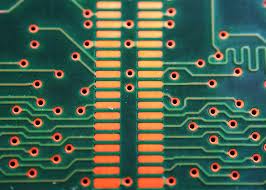How the Microchip Has Changed Your Life

One of the enablers that has really transformed our lives in the last 40 years was being the successful development of semiconductors or microchips as some other people call it. And it has gone from being an incredibly simple device that was used – I remember in the early days of microchips people advertised a two transistor radio, a three transistor radio. And because they were replacing what used to be called tubes. But then the industry moved very rapidly towards integration. So we created the integrated circuit soon after we created the microprocessor. And all of that just exploded in terms of the applications that they went into.
And it is estimated today that the average American from the time they wake up in the morning to the time he goes to bed gets somehow exposed and touches something on the order of 500 microprocessors. So you can think of it as touching 500 computers. You’re probably not aware you did that but, you know, every time you get in your car, your car can potentially have in excess of 100 microprocessors in the automotive electronics. So it’s around us everywhere. Our phones, of course, our laptops, our iPads – all of those things we’re now surrounded by this technology. And the impact that it has has been enormous. I use one example just to illustrate how huge of an impact it has made.
In the 60s Americans made a thing that was called a muscle car. It was a Mustang or a Camaro, whatever it was. And you could get 300 horsepower out of the engine but the expense of single digit miles per gallon. And people were driving them around but that was the days in which gasoline was 20 cents a gallon. Well, today when you look at a car today you can get 300 horsepower, the same horsepower you got before, and you get 30 or more miles per gallon on the car. The efficiency of that came about through electronics and thanks to the microchip. Because now it can sense the temperature of the car, the ambient of the car, the barometric pressure of the car. You can sense all these things and creates the appropriate fuel mixture and all of the things necessary to optimize the burning of that fuel. And it goes beyond that. It actually now is used to, of course, control and minimize the pollutants that actually can damage the atmosphere so they’re much cleaner.
So all of a sudden in a very short period of time, you know, 40 years we’ve gone in automotive electronics to have this gigantic impact on what a car is. You know, if you’re now looking at advertisements for a car on TV, they don’t really advertise the engine anymore or anything like that. They advertise the fact that it’s got a touch screen pad, that it’s got a navigational system, it’s got – so it advertises the things that are all based on these microchips. And that’s just one example. It goes on and on in other fields like health care, weather projections, et cetera. So it’s pervasive and ubiquitous in our lives more than we realize.
In Their Own Words is recorded in Big Think’s studio.
Image courtesy fo Shutterstock





